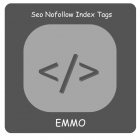How to Identify Keywords Across a Website

How to Identify Keywords Across a Website
Table of Contents
- Understanding the Importance of Content in Ecommerce
- Tools for Keyword Research: Finding the Right Resources
- Analyzing Website Content for Relevant Keywords
- Using Browser Extensions to Extract Keywords
- Exploring the Website’s Meta Tags and Descriptions
- Reviewing Competitor Websites for Keyword Inspiration
- Tracking Keyword Performance with Analytics Tools
- Implementing Keywords Effectively in Your Content Strategy
Understanding the Importance of Keywords in SEO
Keywords play a crucial role in the SEO landscape as they act as the bridge between a user's search intent and the content available on the web. They are the words or phrases that potential customers type into search engines when looking for specific information, products, or services. Understanding the importance of keywords helps businesses target their content effectively to meet the needs of their audience.
Why Keywords Matter
Driving Traffic: The right keywords can significantly increase the quantity and quality of traffic to your website. By targeting keywords that align with user intent, you enhance the chances of attracting visitors who are genuinely interested in your offerings.
Improving Visibility: Search engines use keywords to index and rank web pages. Effective keyword use can lead to higher rankings in search engine results pages (SERPs), making it easier for users to find your content.
Enhancing User Experience: Keywords help you create content that resonates with your audience. When you understand what users are searching for, you can provide valuable, relevant information that addresses their queries.
Boosting Conversion Rates: Targeting the right keywords not only brings traffic but also attracts potential customers who are likely to convert. This means your content can lead to increased sales, sign-ups, or any other desired actions.
Tools for Keyword Research: Finding the Right Resources
A variety of tools are available to assist you in identifying keywords that are relevant to your website and business goals. Each tool offers unique features, allowing you to conduct thorough keyword research effectively.
Popular Keyword Research Tools
Google Keyword Planner: This free tool from Google is widely used for keyword research. It provides insights into search volume, competition, and keyword ideas based on your initial input. It’s particularly useful for PPC campaigns but also aids in organic search efforts.
SEMrush: A comprehensive SEO tool that allows you to perform keyword research, analyze competitors, and track your keyword rankings. SEMrush provides extensive data, including keyword difficulty scores and search trends, making it a favorite among digital marketers.
Ahrefs: Known for its robust backlink analysis, Ahrefs also offers powerful keyword research capabilities. You can view the keywords your competitors are ranking for and identify high-potential keywords with low competition.
Ubersuggest: A user-friendly tool created by Neil Patel, Ubersuggest helps you generate keyword ideas based on a seed keyword, along with data on search volume, competition, and seasonal trends. It’s especially helpful for beginners.
Tip
If you offer your SEO texts in several languages or localize them for different regions, your pages may be incorrectly classified as duplicate content. However, there is a simple solution to this in the form of hreflang. Our article explains what you need to bear in mind when using hreflang.
Read more about hreflangAnalyzing Website Content for Relevant Keywords
After gathering a list of potential keywords, it's essential to analyze the content on your website to see which keywords are currently being used and how effectively they are integrated.
Steps for Content Analysis
Review Existing Content: Look at various types of content on your website, including blog posts, product descriptions, and landing pages. Identify the keywords that appear frequently and assess their relevance to your audience.
Identify Content Gaps: Note any areas where relevant keywords could be added or where content is lacking. This analysis helps you identify opportunities to optimize existing pages or create new content that targets specific keywords.
Assess Keyword Placement: Evaluate how keywords are incorporated into titles, headings, and body text. Effective placement of keywords improves readability and helps search engines understand the main topics of your content.
Evaluate User Engagement: Look at metrics such as time spent on page, bounce rate, and user comments to gauge how well your content is performing. This data can inform your keyword strategy and content improvement efforts.
Using Browser Extensions to Extract Keywords
Browser extensions are handy tools that simplify the process of keyword extraction while you browse websites. They can provide real-time data and insights without requiring you to navigate away from the site you are analyzing.
Recommended Browser Extensions
Keywords Everywhere: This extension displays keyword search volume, cost-per-click (CPC), and competition data directly in your browser. As you visit websites, you can see which keywords they are targeting, allowing for quick analysis.
SEOquake: Offering a variety of SEO metrics, SEOquake provides on-page SEO data, including keyword density and meta information. It helps you assess a website's SEO performance and keyword targeting at a glance.
MozBar: This extension provides instant metrics for any web page, including page authority and domain authority. It also displays keyword information, allowing you to see how well-optimized a page is for specific terms.
Exploring the Website’s Meta Tags and Descriptions
Meta tags play an essential role in SEO and provide valuable insights into the keywords a website is targeting. By examining these elements, you can gain a clearer picture of the website’s keyword strategy.
Key Meta Tags to Analyze
Title Tag: The title tag is one of the most critical on-page SEO elements. It typically contains the main keyword and should succinctly describe the page's content. Reviewing title tags helps you understand the primary focus of each page.
Meta Description: While not a direct ranking factor, the meta description provides a brief summary of the page and often includes keywords. A well-crafted meta description can improve click-through rates by enticing users to click on your link in search results.
Header Tags: Look for H1, H2, and H3 tags within the content. These tags help structure the content and often include keywords that signal the main topics of the page.
Reviewing Competitor Websites for Keyword Inspiration
Competitor analysis is a powerful method for uncovering keyword opportunities. By examining your competitors' websites, you can identify keywords they are ranking for and gather insights for your own strategy.
Steps for Competitor Keyword Analysis
Identify Competitors: Start by listing your main competitors within your industry or niche. Use tools like SEMrush or Ahrefs to find competitors based on keyword rankings.
Analyze Their Content: Look at the types of content they are producing, such as blog posts, product pages, and landing pages. Note the keywords they target and the structure of their content.
Use Keyword Gap Tools: Tools like SEMrush offer a "Keyword Gap" feature, allowing you to compare your keyword rankings with those of your competitors. This helps identify keywords you may be missing out on.
Monitor Competitor Performance: Keep track of how well your competitors are performing in search rankings. Analyzing changes in their keyword strategies can inform your approach and help you stay competitive.
Tracking Keyword Performance with Analytics Tools
After implementing your keyword strategy, it's crucial to track the performance of your targeted keywords. Monitoring their effectiveness helps you understand what's working and what needs adjustment.
Key Metrics to Monitor
Organic Traffic: Use Google Analytics to track the amount of organic traffic your website receives for specific keywords. This metric provides insights into how well your keywords are driving visitors to your site.
Click-Through Rate (CTR): Monitor the CTR for pages optimized with targeted keywords. A higher CTR indicates that your meta tags and descriptions are effectively attracting clicks.
Bounce Rate: Analyze the bounce rate of pages to understand how well users are engaging with your content. A high bounce rate may indicate that your content isn’t meeting user expectations.
Keyword Ranking: Regularly check your keyword rankings using tools like Google Search Console. This allows you to see how well you’re performing for your targeted keywords and identify any fluctuations.
Implementing Keywords Effectively in Your Content Strategy
The final step in identifying keywords is to integrate them strategically into your content. This ensures that your content not only ranks well in search engines but also provides value to your audience.
Best Practices for Keyword Implementation
Natural Integration: Incorporate keywords naturally into your content. Focus on writing for your audience first, ensuring that the content remains engaging and readable while including relevant keywords.
Optimize Headlines and Subheadings: Use keywords in your headlines and subheadings to improve SEO and help users quickly grasp the content's main topics.
Utilize Variations and Long-Tail Keywords: In addition to primary keywords, include variations and long-tail keywords. These phrases tend to have lower competition and can attract targeted traffic with higher intent.
Monitor and Adjust: Regularly review the performance of your keywords and make adjustments as necessary. Experiment with different keywords and content strategies to see what resonates best with your audience.
| How to Identify Keywords Across a Website | |
|---|---|
| 1. Understanding the Importance of Keywords in SEO | Keywords are essential for connecting users with relevant content. They drive organic traffic, improve visibility in search results, and enhance user experience. By understanding how to leverage keywords, you can attract the right audience and increase conversion rates. |
| 2. Tools for Keyword Research: Finding the Right Resources | Utilize various keyword research tools like Google Keyword Planner, SEMrush, and Ahrefs to identify relevant keywords. These tools provide valuable insights into search volume, competition, and keyword suggestions, helping you develop a robust keyword strategy. |
| 3. Analyzing Website Content for Relevant Keywords | Review existing content on your website to identify current keyword usage. Look for content gaps where relevant keywords are missing and assess the placement of keywords within titles, headings, and body text for optimal SEO. |
| 4. Using Browser Extensions to Extract Keywords | Browser extensions like Keywords Everywhere and SEOquake simplify keyword extraction by providing real-time data as you browse. These tools can help you quickly analyze keyword usage on different websites. |
| 5. Exploring the Website’s Meta Tags and Descriptions | Meta tags, including title tags and meta descriptions, are critical for SEO. Analyze these elements to understand the primary keywords a website targets, as they influence both search engine rankings and user click-through rates. |
| 6. Reviewing Competitor Websites for Keyword Inspiration | Examine competitor websites to identify keywords they rank for. Utilize tools to compare your keyword strategy with theirs and discover high-potential keywords that you might be missing. |
| 7. Tracking Keyword Performance with Analytics Tools | Monitor keyword performance using analytics tools like Google Analytics. Focus on metrics such as organic traffic, click-through rates, and bounce rates to assess the effectiveness of your targeted keywords. |
| 8. Implementing Keywords Effectively in Your Content Strategy | Integrate keywords naturally into your content, focusing on readability and audience engagement. Optimize headlines, subheadings, and body text while monitoring keyword performance to refine your content strategy over time. |
FAQs
Why Is Keyword Identification Important for Websites?
Identifying keywords is crucial for optimizing a website for search engines. Keywords help search engines understand the content of your site, making it easier for potential customers to find you. By targeting the right keywords, you can improve your search visibility, attract relevant traffic, and increase conversion rates.
What Tools Can I Use to Identify Keywords on My Website?
There are several tools available for keyword identification, such as Google Keyword Planner, SEMrush, Ahrefs, and Moz. These tools provide insights into keyword search volume, competition, and related keywords, helping you optimize your content effectively.
How Do I Conduct Keyword Research for My Website?
Start by brainstorming relevant topics and phrases related to your business. Use keyword research tools to analyze search volume and competition. Consider long-tail keywords, as they are less competitive and often more specific, attracting more targeted traffic.
What Are Long-Tail Keywords and Why Should I Use Them?
Long-tail keywords are longer and more specific keyword phrases that typically have lower search volume but higher conversion potential. They target niche audiences and can help you rank higher in search results, as they face less competition than broader keywords.
How Can I Analyze Keyword Performance on My Website?
You can analyze keyword performance using tools like Google Analytics and Google Search Console. These tools provide data on keyword rankings, organic traffic, and user behavior, allowing you to assess the effectiveness of your keywords and make necessary adjustments.
How Often Should I Review and Update My Keywords?
It’s a good practice to review and update your keywords at least every few months. This ensures that your content remains relevant and aligned with current search trends and user behavior. Regular updates can help maintain or improve your search rankings.
What Role Does SEO Play in Keyword Identification?
SEO plays a vital role in keyword identification by helping you determine which keywords to target for optimal visibility and traffic. Effective SEO strategies include keyword research, on-page optimization, and content creation, all centered around relevant keywords to attract your target audience.
Can I Use the Same Keywords Across Multiple Pages?
While it’s acceptable to use some keywords across multiple pages, it’s important to avoid keyword cannibalization, where multiple pages compete for the same keyword. Instead, focus on optimizing each page for unique keywords to improve overall site visibility and search rankings.










